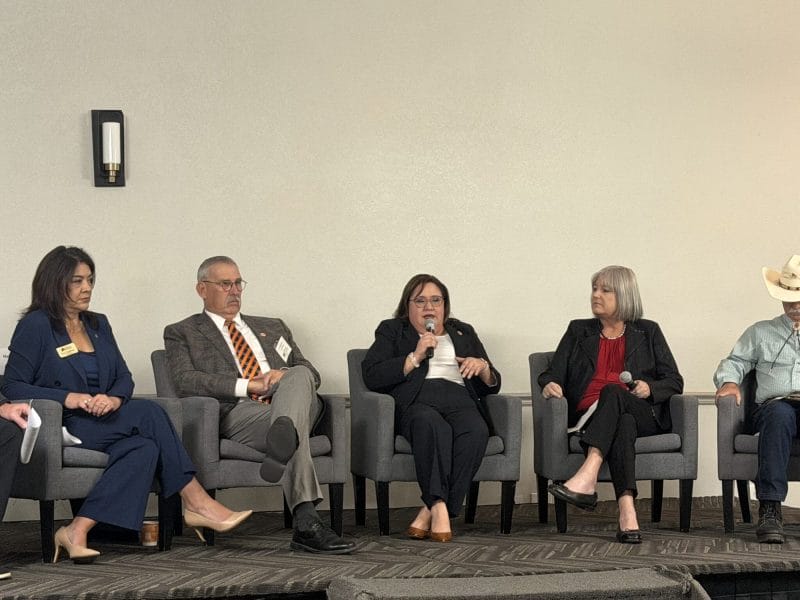By Andrew Turk & Olen Lenets | Maricopa Lawyer
Litigators are trained to deal with adverse parties. This does not mean that your opposition is your enemy. In fact, the Arizona bar is small enough that the chances of running into your opponent again (and again) is all too high. Your opposing counsel one day (or in one case) may be your co-counsel another. These simple guidelines can help you navigate the often-strained professional relationships that are part of litigation, while maintaining your reputation and representing your client, your firm, and yourself well.
1. Remember the Creed of Professionalism
Often, litigators frame their conduct on what is permissible. We are all bound by rules of civil procedure, rules of evidence, and the ethical rules. If you are licensed in Arizona, you are also bound by the Creed of Professionalism. This is often overlooked but, when you are sworn into the Arizona State Bar, you agree to be bound by the Creed of Professionalism. See Rule 41, Rules of the Supreme Court of Arizona. Indeed, the Creed of Professionalism lays out rules for your interactions with clients, courts, and opposing counsel. Do you know your obligations to opposing counsel when asked for a deadline extension or scheduling a deposition? If not, it may be time to revisit the Creed of Professionalism.
2. Watch Your Emails
Email is a wonderful thing, but it also creates frequent opportunities for trouble. As a general rule, we recommend against putting anything in a professional email that you would not want a judge (or your parents) to see. All too often, litigators view emails as a means of “informal” communication. However, an email is just as permanent as a letter and can just as easily be used against you in court (or in a disciplinary proceeding). Your emails should be professional, reasonable, and well-written, even if you are taking opposing counsel to task.
3. Watch Your Emails II—Be Wary of Humor
Jokes do not always translate well in an email. In fact, they rarely do. Nor does everyone share the same sense of humor. Do not derail a productive exchange with opposing counsel by creating a need to explain or (worse) walk back a joke. An offhand attempt at humor may create a landmine in what would otherwise be a helpful exhibit, should you need to submit the email to the Court. Additionally, an ill-placed joke may lead your client to think you are not taking their case seriously.
4. Do Not Be Afraid to Pick Up the Phone
All too often, litigators forget that they can actually talk to one another. Talking on the phone can allow you to develop a relationship with your opposing counsel that simply is not possible when you communicate solely by email. Picking up the phone can fast track a resolution or clear up any lingering uncertainties the other side might have regarding your positions. It is also a cost-effective tool for a budget conscious client, eliminating the need for a series of emails between counsel.
5. Is Lunch an Option
Just as you can talk on the phone, you can also meet in person. Clients generally do not want their attorneys “palling around” with opposing counsel, but this does not mean it is inappropriate to make an effort to get to know the opposition. Just offering to discuss a case over lunch can be a great way to defuse tension in a case that has grown heated. A quick lunch can also help you quickly get the “lay of the land” when you are just entering a case that has been underway for a while. In most cases, parties benefit when their attorneys have a good working relationship.
6. Do Not Engage When You Are Angry . . . Or Tired.
Although emotion can be a great motivator for a litigator, taking the time to formulate a cogent, tempered response will always lead to better results. Once the desire for a passionate, kneejerk reply subsides, you will be able to draft something that does more to further your client’s position and is less problematic should the exchange become an exhibit. Similarly, engaging when tired can lead to sloppiness and perhaps detract from the stronger, better presented positions you made previously in the discourse. Regardless of deadline and billing pressure, if you are so tired you cannot focus on the critical task(s) in front of you, it is time to get some rest.
7. Are You on the Record?
This is, frankly, one of those “it goes without saying” guidelines that, nonetheless, still needs to be said. If you are on the record, all the guidelines about emails and communications apply with even greater to force if you are on the record, such as at a deposition. Do not let yourself be drawn into an argument or into taking unreasonable positions that become part of a transcript.
8. Is Silence an Option?
It is fair to say that litigators are a talkative bunch. But ask yourself, “Do I really need to say something?” If the answer is no, consider saying nothing or letting someone else take the lead.
9. The Art of an Interim Response
Sooner or later, if you have any success, you will find yourself pressed to respond to all the emails, letters, and calls you receive. This is almost a truism. The fact that everyone experiences this at some time does not, however, give you license to ignore those emails, letters, and calls. No one likes the feeling that they are being ignored. It is perfectly acceptable to simply acknowledge an attempted communication and explain that you are busy (under a deadline, sick, in deposition or trial) and that you will respond fully as soon as you can. You might be surprised by how much goodwill this simple gesture can buy you.
10. Be Decent
Litigators have bad reputations for being overly aggressive, “junkyard” dogs. While this is fairly viewed as an exaggerated stereotype, it is one that we ourselves have allowed to gain purchase in popular culture (some might say we promote it). But there is nothing in the rules (any rules) that says you cannot be nice. (We checked!) Rudeness and bad manners will rarely, if ever, win you points or improve your credibility. (See No. 1 above.) Of course, there are times when you will have to be aggressive, force an issue, or even ask for sanctions. But always being a jerk is neither good tactics nor sound strategy. If angry is your default mode, your “anger” soon loses all meaning. Moreover, in the final analysis, this job is hard enough without having someone purposefully going out of their way to make your life miserable. Be kind to each other (when you can.)
Andrew Turk is the Chair of the Litigation Department of Rose Law Group, PC. Olen Lenets is a Senior Associate in the Litigation Department at Rose Law Group, PC.








